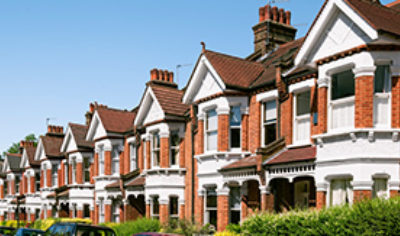Holiday Home insurance in Denmark
obtaining insurance for your holiday or second home in Denmark is now available from the United Kingdom and the policy wording will be written in English and should contain most of the usual perils you would expect to see under a standard household policy wording. Remember, if you are intending to let your property to make sure that the insurance company has extended the policy to include property owners liability insurance. As with other countries calculating your sum insured should be based on the rebuilding cost of the property, not on the amount that you have paid for the property. If you are obtaining a mortgage on your property in Denmark, then you should find that the lender will provide you with an indication of the amount that you need to insure for. If this is not the case, you should always seek a professional opinion. Contents, should be valued on an as new basis and when calculating your sum insured, it is often easier to go from room to room making notes. Earthquakes are most unusual in Denmark but a natural hazard that does occur is flooding and often in some areas of the country that are protected from the sea by a system of dikes. Flooding occurs along the southern coast of the island of Lolland, and parts of Jutland.
Why Buy a Holiday Home in Denmark?
located in north-western Europe to the north of Germany, (which is it’s only land route in to Europe) Denmark consists of the Jutland peninsula and the two main islands of Zealand and Funen. There are also in excess of 400 islands but most of these are uninhabited. Denmark is not widely known as a country in which there is a great deal of holiday home ownership by foreign investors, in fact, there are some special restrictions on foreign ownership in some areas, especially when attempting to buy holiday homes in the favourable coastal areas. These laws have been specifically drawn up to prevent coastal property falling in to the hands of foreign investors. In view of these rulings investors often stick to the capital city of Copenhagen. Prices here for property are expensive but not as expensive as other European cities. Recently, a 16 mile tunnel was constructed to connect Denmark with Sweden and now there is a tend for residents of Copenhagen to move to cheaper areas and commute to work.
How to Buy a Holiday Home in Denmark?
If you are thinking of buying property in Denmark, then there are a number of factors to be taken in to consideration. If you have no residence in Denmark, and have not previously had residence in Denmark for a total of five years, you will need permission from the Ministry of Justice to purchase property. This rule applies to both all-year residence and to property that you intend to use as your holiday home or holiday let. If you are an EU citizen, you can normally get away with not having the necessary permit providing of course you intend to live in the house on a permanent basis and in these cases a signed declaration is simply attached to the deed. Buying a property for rental purposes, is difficult if you are a non resident and you will really need good quality legal advise to explain what you can and cannot do.
Once you have located you property, it is normal practice for a survey to be carried out. In Denmark, the seller will provide you with a building condition report which will describe the physical condition of the property as well as any pre existing conditions that may in time lead to new defects. It is interesting to note, that if there is no property report produced, you can hold the seller responsible for up to 20 years for any defects or damages. With the exception of Holiday Homes, the seller also has to provide you with details about the properties energy expenses.
It is usual for your solicitor to conduct negotiations with the sellers estate agent and this includes matters relating to agreeing the final price. In addition to this your solicitor should examine the agreement of sale ( this document is known as ‘the skoede’), the survey report and carry out local authority searches to ensure that everything is in order. As the purchaser of the property you will usually be liable for half the fees for final contracts, which are calculated as 0.6 percent of the property value plus €175. Stamp duty and other costs run to, 0.6 percent to 1.5 percent of the property value. You legal fees could be up to €1000 depending on the size of the property and the amount of work you solicitor has to carry out, the seller usually pays the estate agents fees.
























